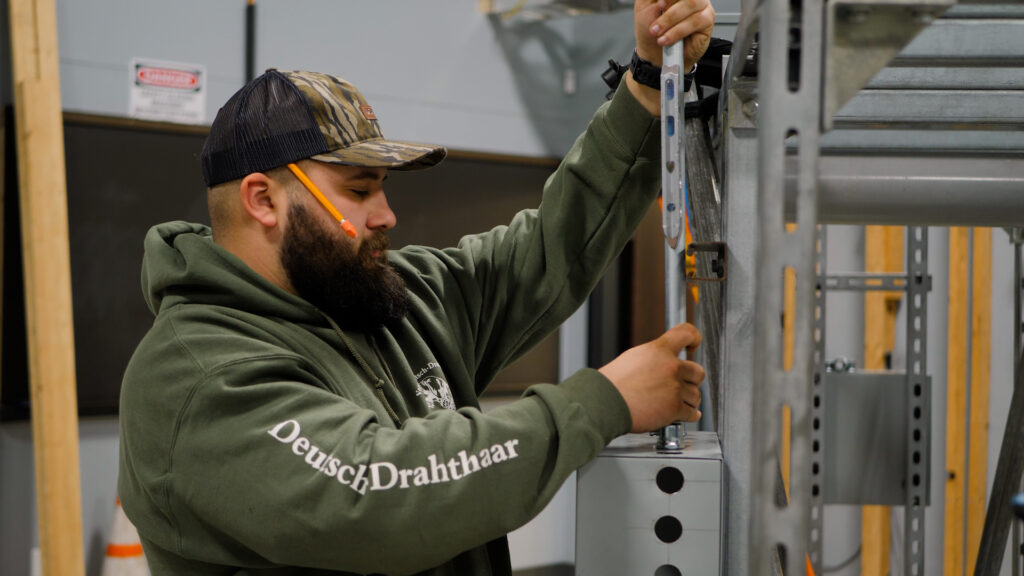Pursuing a college degree can be costly. Learning a skilled trade, like becoming an electrician, allows young people to start a career right out of high school without accruing student debt. The below information leaves a comparison to ponder – apprenticeship or college?
Costly college or apprenticeship earnings?
In Ohio, the average cost to attend a public university or college for four years is $40,000-$50,000. That figure increases by $10,000-$15,000 more per year when factoring in living expenses, according to the Education Data Initiative (EDI).
There is a modest cost tied to a union electrician apprenticeship, such as those through the Youngstown or Warren JATC, but going this route means earning a paycheck right away and getting trained by journeymen electricians.
“Hourly wages and benefits for a first-year apprentice can total just over $56,000 in one year. Even more with overtime,” said Eric Davis, training director at the Warren JATC.
Wages also increase as the apprentice gains more experience. It takes three years to complete a residential apprenticeship and five for a commercial/industrial. Davis says most people reach about 10,000 working hours when they’re done, but 8,000 is the minimum.

“Over the course of the apprenticeship, for all 10,000 hours, you’re looking at wages totaling around $270,000. That’s not including what you’d get for benefits and pension,” he said. “It’s also important to note those benefits don’t come out of the apprentice’s pocket. That’s just something they receive automatically.”
A decision to dodge the debt
The Bureau of Labor Statistics reports the average annual salary for someone with a four-year degree in Ohio is $50,000-$60,000. However, depending on one’s career choice it can take years to earn that amount, not to mention taking on significant debt to get there.
EDI says the average federal student loan debt is more than $30,000. For a private college it can be $50,000 or more. Electrician apprentices can earn that amount of money (each year!) instead of owing it.
That also means starting a career with no debt – especially when more than 32 percent of college undergraduates don’t even end up with a degree, according to EDI.
When apprentices reach journeyman status, Davis says the annual salary is around $84,000. That’s for a 40-hour week and doesn’t include the value of healthcare and pension benefits.

“Foremen or project managers can make more, and specialized training options might increase wages a little bit, too,” he said. “The important thing is there are different career paths to take once you get through the apprenticeship.”
Electricians remain in high demand across the country, and the IBEW can help members find work anywhere. The Bureau of Labor Statistics predicts a 10 percent increase in electrician jobs by 2028.
“It’s a great trade with livable wages, and it’s a lifetime career for those who are dedicated to it,” Davis said.
NECA-IBEW Electricians makes up a highly trained union workforce in the area. We’re an association of IBEW Local 64 in Youngstown, IBEW Local 573 in Warren and signatory electrical contractors throughout the Mahoning Valley.


